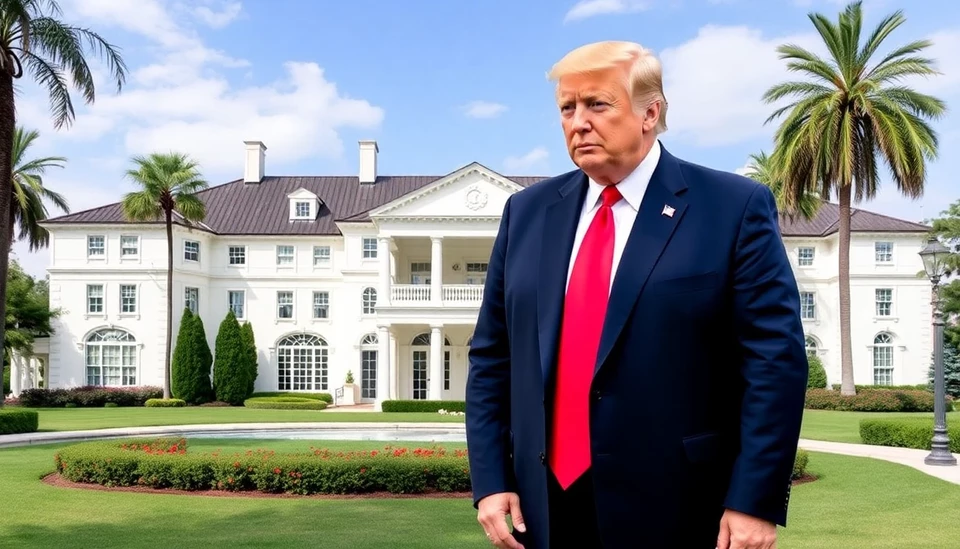
In a revealing analysis of former President Donald Trump’s tariff policies, it has become apparent that his financial interests in Mar-a-Lago, his private club in Florida, may have influenced his administration's trade decisions. The prestigious club, which charges steep membership fees, has served as both a symbol and a financial mechanism in Trump's extensive portfolio, raising questions about the motivations behind his tariff obsessions.
Trump's Mar-a-Lago estate, known for its luxurious atmosphere and exclusive membership, reportedly requires a hefty initiation fee. This financial framework has come under scrutiny as many speculate that the income generated from memberships correlates with his advocacy for tariffs that could have a direct impact on various industries. The club not only serves as a hub for socializing with political elites and business magnates but also acts as a potential business tool for Trump, further intertwining personal financial gain with national policy.
During his presidency, Trump’s aggressive tariffs on imported goods, especially from China, were framed as measures to protect American jobs and industries. However, critics argue that there is a deeper financial undercurrent, given the popularity of his Mar-a-Lago club among affluent members of industry who could benefit directly from trade barriers. These tariffs have produced significant financial outcomes, not just in terms of national trade policy but also in ensuring a continued flow of high-profile members to Trump’s club.
As the tariffs increased, so too did the prominence of Mar-a-Lago as an exclusive destination for corporate leaders and politicians looking to align themselves with the former president. This blend of politics and exclusive business dealings highlights how the pursuit of cash flow from club memberships could be intrusively linked to Trump’s economic policies. In the world of high-stakes business and political maneuvering, the lines between public service and personal gain can often blur, raising moral and ethical questions regarding the influences on the highest levels of government.
As we reflect on Trump’s presidential legacy, it is critical to consider how his personal business interests may have affected vital economic strategies and policy decisions. With this in mind, one must ponder the future implications of mixing political ambitions with personal financial motives, especially as discussions continue around policy reform, trade relations, and the profitability of exclusive clubs such as Mar-a-Lago.
The revelation of the potential connection between Trump’s tariff policies and his Mar-a-Lago income stream adds a complex layer to understanding his presidency. As such, it beckons a re-evaluation of how political power can be intertwined with private financial interests, potentially shaping policies that serve both national agenda and personal enrichment.
Looking ahead, this narrative raises questions among former supporters and critics alike: could the motives behind high-profile tariff policies have been just as lucrative for Trump personally as they were politically strategic? The intertwining of business and politics is as old as the two entities themselves, but the Mar-a-Lago scenario adds a fresh perspective to a dialogue that remains crucial in the current political climate.
As news continues to surface about the financial dealings and decision-making processes of public figures, transparent discussions surrounding their potential conflicts of interest have never been more vital. This topic will undoubtedly continue to evolve as investigations and studies delve deeper into the ramifications of such influences on policy-making.
These insights into Mar-a-Lago's financial implications serve as a reminder of the complexities at the intersection of business, politics, and personal interests, raising the stakes for current and future administrations.
#Trump #Tariffs #MarALago #PoliticsAndBusiness #TradePolicy #ConflictOfInterest #FinancialInterests #PoliticalMotivation #EconomicStrategy
Author: Rachel Greene




